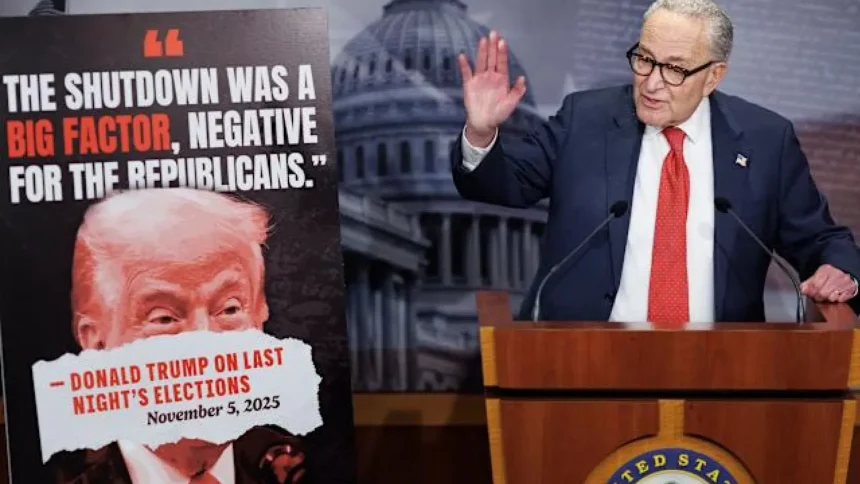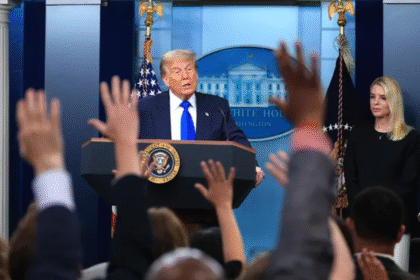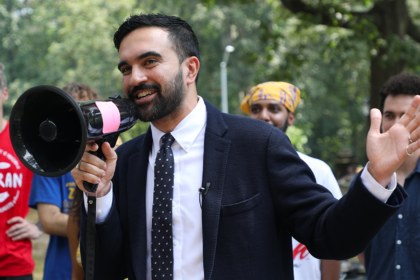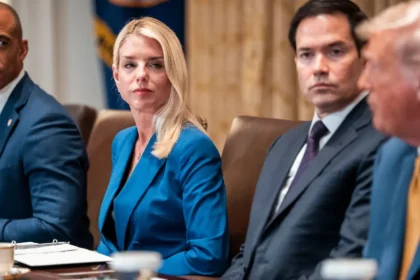As the federal government shutdown stretches on, Democrats now find themselves caught in a political dilemma that some critics are calling a “twisted irony.” The very party that has long condemned shutdowns for their impact on working families and vulnerable citizens is now being accused of prolonging one in pursuit of its own policy goals.
At the center of the dispute lies a fight over healthcare — specifically, the extension of Affordable Care Act (ACA) premium subsidies. These subsidies, introduced during the pandemic, have helped millions of Americans maintain affordable health insurance. With their expiration date looming, Democrats have drawn a firm line, demanding that any spending bill to reopen the government include funding to keep the subsidies in place.
Republicans, meanwhile, argue that Democrats are holding the government hostage over one issue and prioritizing politics over people. As negotiations stall, the effects of the shutdown are spreading far and wide, impacting the very programs Democrats have long promised to protect.
A Shutdown That Hits Home
The irony, critics say, is that Democrats’ refusal to compromise has put many of their own constituencies at risk. Essential social programs — including the Supplemental Nutrition Assistance Program (SNAP), which provides food aid to millions of low-income Americans — have already begun to feel the pressure. With funds running thin, many recipients are receiving partial benefits, and some states have warned that future payments could be delayed altogether.
Federal workers, another group that often leans Democratic, are also caught in the middle. Thousands have been furloughed or forced to work without pay, with no clear end in sight. The shutdown’s impact on government operations — from small business loans to national parks — continues to grow by the day, threatening local economies and communities that depend on federal services.
Democrats have long argued that shutdowns are reckless tools of political brinkmanship that hurt ordinary Americans. But now, some of their traditional talking points are being turned against them. Republican lawmakers point to the shutdown’s effects on working families, saying Democrats are inflicting harm on their own base to score a political victory.
The High-Stakes Gamble
For Democratic leaders, the stakes are enormous. Losing the ACA subsidies could lead to higher premiums for millions of families — a development that would strike at the heart of one of their signature achievements, the Affordable Care Act. Party strategists argue that standing firm now could prevent a larger crisis later, both politically and economically.
Yet this strategy carries serious risks. Polls have historically shown that voters grow impatient with prolonged government shutdowns, often assigning blame to whichever party appears less willing to compromise. While Democrats insist they are fighting for working families, the optics of a shutdown that delays paychecks and food benefits could erode public sympathy.
Even within Democratic ranks, some members privately admit the situation is painful. “This shutdown hurts, and it’s not something we ever wanted,” one Democratic senator reportedly said. “But we also can’t walk away from millions of Americans who could lose their health coverage if we give in.”
Republicans, however, argue that Democrats are using ordinary Americans as leverage to force through a policy that should be debated separately from funding bills. “They’re making the same mistake they accused us of making years ago,” one GOP lawmaker commented. “You can’t claim to protect working people while shutting down their government.”
Political Fallout and Future Implications
The longer the shutdown lasts, the more it risks reshaping the political landscape heading into the next election. Both sides are attempting to shape the narrative — Democrats portraying themselves as defenders of healthcare and Republicans painting them as hypocrites who have abandoned their own principles.
Historically, the political party perceived as responsible for a shutdown suffers at the polls. Democrats are betting that voters will ultimately side with them once they understand the stakes of the healthcare subsidy issue. But if the shutdown drags on and the hardship deepens, that calculation could change quickly.
Public frustration is already visible. Federal employees have begun organizing protests in major cities, while advocacy groups for low-income families are calling on both parties to end the standoff. Business owners who depend on federal contracts warn that continued gridlock could trigger layoffs and slow local economies.
In the end, the “twisted irony” of the situation may lie in how political strategy collides with real-world consequences. Democrats’ stand on healthcare could secure a long-term victory — but if it alienates voters and undermines their reputation as champions of working families, the short-term damage could be far greater than they anticipated.
As both sides dig in, one thing is clear: the human cost of political gamesmanship continues to rise. Whether the Democrats’ gamble pays off or backfires spectacularly will depend not only on the outcome of negotiations, but also on how the American people choose to interpret this moment — as a fight for principle or a failure of governance.











